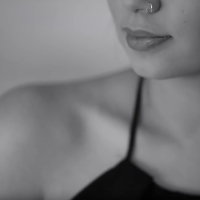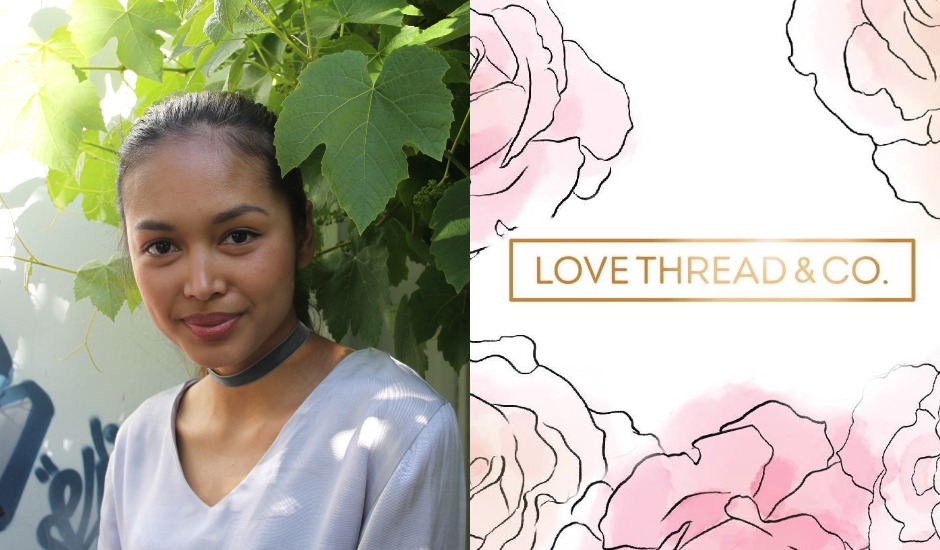 We owe Thelma Plum, and other victims of abuse in Aus' music, a big apologyIt’s time we in the music media put our hands up and become more accountable.
We owe Thelma Plum, and other victims of abuse in Aus' music, a big apologyIt’s time we in the music media put our hands up and become more accountable.

Love Thread & Co - Combatting Modern Slavery In Fashion
Olivia Senior chats wit LT&C founder Angeline Lloyd about ethics in fashion.
Words by Olivia Senior.
Angeline Lloyd, 26, is a lady who for years felt she had to conform to the social expectations of being a fashion blogger. The expectations of having to wear what everyone else is wearing, to maintain followers, to have all the new stuff, to have the perfect body.
She says a lot of girls face these struggles everyday, but being so involved in the industry makes it hard to separate that life, with reality: “When you’re a blogger, when you’re in front of the camera and in front of people, you’re exposed to it more and it’s very hard,” she says.
With thousands of followers, she constantly felt the pressure to persuade her audience she was worthy, when the truth was she didn’t feel that worth at all. She says all of these things made it hard for her to be strong on bad days, it made her question what being apart of it all actually meant. “I went through a huge depression because I wasn’t sure of what I wanted to do, when you see people on Instagram you think people have it all figured out, and that was like my case, I seemed like this happy person but I was miserable inside.”
She had deeply involved herself in the world of fashion, but not in the way she wanted. It had become superficial. “I didn’t want to be a slave to it,” she says. Although she has a strong love for fashion it became very draining, it became tough and she could see it was leading her in the direction she didn’t want to go.
This time last year she had a break-through: “I had to make the decision whether I should be the voice of difference or whether to just follow the crowd,” she says.
She decided to become a voice of difference.
At this year's Telstra Perth Fashion Festival Angeline launched a new initiative: Love Thread & Co, a socially conscious label that serves as a collaborative platform for brands who want to use their influence for good. To help educate, restore and empower women.
Its purpose: to combat modern slavery.
“We focus on it by raising awareness of the people that work in the fashion industry; fashion designers, and to the fashion communities about human slavery; modern slavery,” she says.
Although it is well known in the fashion industry places like Bangladesh, India and Cambodia have some of the worst sweatshops in the world, a problem closer to home that people don’t know about, or choose to be ignorant towards, are the poorly operated house productions in Bali.
“I’ve been there and it’s just crazy,” she says.
“It’s probably the size of this area,” she says while pointing at the few tables that surround us, tying to explain what the work environments look and feel like. “The size of just a few tables is where they work, sleep, eat, their family live and everything.”
But she says the Balinese people do it because they have to, because they need the money. I am then told the 'bowtie story' which helped put words like ‘unfair’ and ‘underpaid’ in perspective.
“There is this one story from my friend. A client came to her from Australia and wanted to get bowties made. They wanted it done for 10,000 Rupiah (about 1AUD), completely ready, one bowtie including the material, the worker and everything. My friend thought it was way too little, ‘we’ve got to pay these people’ she says. He responds ‘no, I don’t want to do it through you guys then because this is how much I’m willing to pay’. And that’s a dollar,” she says.
She later found out the bowtie was sold to the market for $40; a $39 profit.
She says by working closely with existing fashion enterprises like the ones she has collaborated with recently, Wild Horses, Hello Parry and Imaji, they can physically show them what their profits can achieve.
“It can contribute to not only changing peoples lives but the mindset of these workers too,” she says.
Angeline has partnered up with two of her friends in Indonesia who both have have a vast experience working in the fashion industry. Adi and Kezia have been production managers for years for many brands, and think this is a great process to be apart of. They will work with a couple who own a house production, they are the seamstresses making the clothes. And they are being provided with adequate training, equipment and ethical working methods.
Angeline says the couple were shocked at first because no one has ever wanted to do something like this before; to increase their quality of life and give them opportunity. “People so easily throw money around to fix problems, money doesn’t fix anything, action does,” she says. “We are not just doing a ‘band-aid solution’, we want to change the industry.”
She’s very clear about making everything very transparent, about the fact that when designers collaborate with Love Thread & Co, they are taking action and being responsible towards creating a better community. “That is one of our goals, to create conscious consumers, because it all starts from the consumers.”
Love Thread & Co wouldn’t exist without Angeline’s first initiative: Love Thread Project. In July, for the first time, people gave money to help launch Love Thread & Co because of the previous work she had done helping others. “It was just a side thing to my blog” she says, but it has blossomed into a really important platform for two reasons.
The first: the project partners up with different organisations and charities to help educate and empower women. Flux is one. A Balinese, not-for-profit organisation that provides support for young survivours of human sex trafficking. Angeline has been volunteering her time over there doing workshops, giving girls skills she has acquired over the years from working in the fashion industry.
The second reason: because it is now going to be used as a charity, 100% of its profits will go into funding a restoration program for young women at risk in Bali, to help people like the house production couple and helping youth who have been afflicted.
Girls like Mary.
Mary is one of the Love Thread Project's success stories. She was sold and trafficked by her own dad when she was only eight years old.
According to The United Nations Children’s Fund, 40,000-70,000 Indonesian children below the age of 18 are victims of sexual exploitation. Luckily for Mary she was saved, and luckily for Mary she has been given opportunities.
Girls like Mary will also later have the opportunity to get an internship with Love Thread & Co. Angeline reiterates this is why these initiatives aren’t just a ‘band-aid solution’ to a problem. Because Angeline has been so heavily involved in the fashion world, and, with organisations that help women and children, the concept for Love Thread and Co was easy to start, because she put two and two together, and more importantly, she found a purpose.
“Why couldn’t I do two things that I love: fashion and women empowerment?” she says.
She tells me fashion is just a platform at the moment because it’s one of the bigger things that connects Australia with Bali so it’s a good starting point.
The reason they collaborate with different designers is because it will create a further reach.
“We want to impact and influence people from different ages, culture, and different style, that’s why we want it to be very fashion forward, because if you think about charities and fashion, you think about hemp t-shirts. It is very rare these days that a fashion for good label is stylish as well.”
To learn more about Love Thread & Co head to their WEBSITE.
To get involved with the Love Thread Project head to their WEBSITE and/or FACEBOOK.
 We owe Thelma Plum, and other victims of abuse in Aus' music, a big apologyIt’s time we in the music media put our hands up and become more accountable.
We owe Thelma Plum, and other victims of abuse in Aus' music, a big apologyIt’s time we in the music media put our hands up and become more accountable.
 2016: Swan Song Of TruthWhat a year it has been.
2016: Swan Song Of TruthWhat a year it has been.